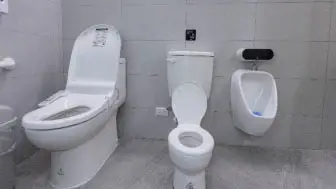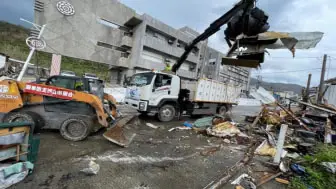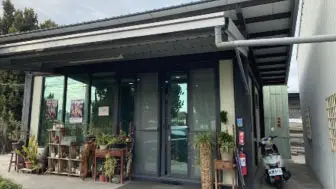 Environmental Sanitation
Environmental Sanitation
In modern society, environmental sanitation management plays an extremely important role, affecting our quality of life and social development. Actively promoting environmental sanitation and cleanliness policies, quality environmental creation policies, and measures for the care sanitation Worker have become focuses for all levels of government and society.
We are dedicated to creating a clean, safe, and beautiful living environment. This includes formulating policies and regulations to ensure the implementation of environmental sanitation and cleanliness, and developing emergency response plans for environmental pollution, natural disasters, and other emergencies to respond quickly and restore the environment. Additionally, we focus on the safety, health, and welfare of sanitation personnel, optimizing processes for environmental cleaning and waste removal, and coastal maintenance. We continuously promote policies to build livable cities, improve residents' quality of life, and protect valuable natural resources.
Scope of Work- Formulate environmental sanitation and cleanliness policies and regulations to ensure effective implementation.
- Develop quality environmental construction policies to improve urban living environments.
- Promote policies for the safety, health, equipment, professional skills, and welfare of sanitation personnel.
- Optimize equipment, vehicles, facilities, and systems for environmental cleaning and waste removal.
- Establish emergency response plans to respond swiftly to sudden pollution events.
- Plan and promote emergency response and environmental restoration plans for natural disasters to ensure rapid post-disaster environmental quality recovery.
- Formulate and supervise coastal cleaning and maintenance policies to protect coastal natural resources and ecosystems.
- Other matters related to environmental sanitation.



Promoting environmental sanitation, replacing old public restrooms and improving maintenance quality, preventing mosquito-borne diseases, responding to and recovering from environmental epidemics, caring for sanitation Worker, enhancing living environment quality, and creating livable cities.
Improving Public Facilities Quality and Environmental Management PlanThrough improving the quality of public facilities and promoting environmental management, we aim to enhance the overall quality and sustainability of the environment. The plan includes various measures such as building and repairing public restrooms, promoting restroom management and benefits for sanitation workers, promoting low-carbon garbage trucks, improving prep room environments for sanitation workers, and disaster response and environmental recovery, all of which to support the vision of national sustainable development.
Public Restroom Construction and ManagementWe are committed to elevating the quality of public restrooms nationwide, prioritizing the renovation and reconstruction of "old restrooms" and those "not rated as outstanding." From 2025 to 2030, we aim to complete the construction or repair of 2,500 public restrooms, gradually creating quality public restrooms throughout the country to provide a superior restroom environment.
Public restroom quality requires the joint effort of the government and public, especially in tourist areas. In crowded, popular tourist zones, more public restrooms will be added, and inspections of restroom environments in key tourist areas will be strengthened. By incorporating QR codes, the public can also participate in management. Meanwhile, we encourage private sector involvement in the operation of public restrooms to improve management quality. This not only enhances restroom environments but also supports the development of the tourism industry.
Welfare for Sanitation WorkersBy conducting relevant training or workshops, we aim to strengthen sanitation workers awareness of occupational safety and health, and supervise local governments to enforce the Occupational Safety and Health Act. This is intended to assist and enhance the focus of local environmental protection agencies on occupational safety and health management, promoting the work safety and health of sanitation workers.
Promotion of Low-Carbon Garbage TrucksTo reduce carbon dioxide emissions, countries worldwide have been actively promoting low-carbon transportation in recent years. In Taiwan, household waste collection primarily relies on curbside pickup, leading to frequent starts and stops and high fuel consumption (most garbage trucks are traditional diesel engines, and their emissions are a public concern). To support international energy-saving and carbon reduction efforts, subsidies have been provided to local governments to replace traditional garbage trucks with low-carbon trucks.
Sanitation Worker Prep Room Environment ImprovementIn line with the president's and Executive Yuan's policy to care for sanitation workers, the administration has been addressing the aging and deteriorating conditions of sanitation workers' prep rooms and enhancing sanitation workers' work environment quality by improving and optimizing the work environment for sanitation workers, providing them with a safe and comfortable workspace.
Planning, Promoting, Coordinating, Implementing, and Supervising Natural Disasters Emergency Response and Environmental RecoveryIn response to global warming and climate change, the frequency and severity of environmental disasters have increased in recent years. We coordinate and supervise the cities and counties preparation of disaster and epidemic response supplies, planning relevant allocation mechanisms to effectively manage situations, provide timely support for disaster response and environmental recovery, enhancing the effectiveness of disaster response operations.
Future OutlookThrough ongoing efforts and the implementation of various policies, we have achieved certain results. However, we are also aware of the many challenges and issues that still need to be addressed collaboratively. Moving forward, we will continue to promote environmental sanitation management with the following initiatives:
- Promote safe, comfortable, and dignified public restrooms, improving their standards to an outstanding level to create a high-quality environment.
- Propose the "Comprehensive Sanitation Worker Management and Electrification of Garbage Collection Vehicles Plan" as an infrastructure project.
- Enhance occupational safety and health management for local environmental agencies and promote the replacement of old garbage trucks with low-carbon trucks.
- Strengthen support for dengue fever source eradication and implement precise prevention strategies to reduce case numbers.
- Evaluate coastal cleanliness maintenance, urging ministries and local governments to enhance coastal cleaning according to assessment guidelines.
- Develop unmanned aerial vehicle imaging systems for artificial intelligence-based classification of coastal waste types, replacing manual calculations.
- Conduct disaster environmental recovery dispatch drills and inventory local government disaster response equipment and supplies.
By implementing these key initiatives, we aim to improve living environment quality, create more livable cities, and continuously strive for the health and quality of life of the public.
- Data Source: Division of Environmental Sanitation
- Publish Date: 2024-08-27
- Update Date: 2025-12-11








